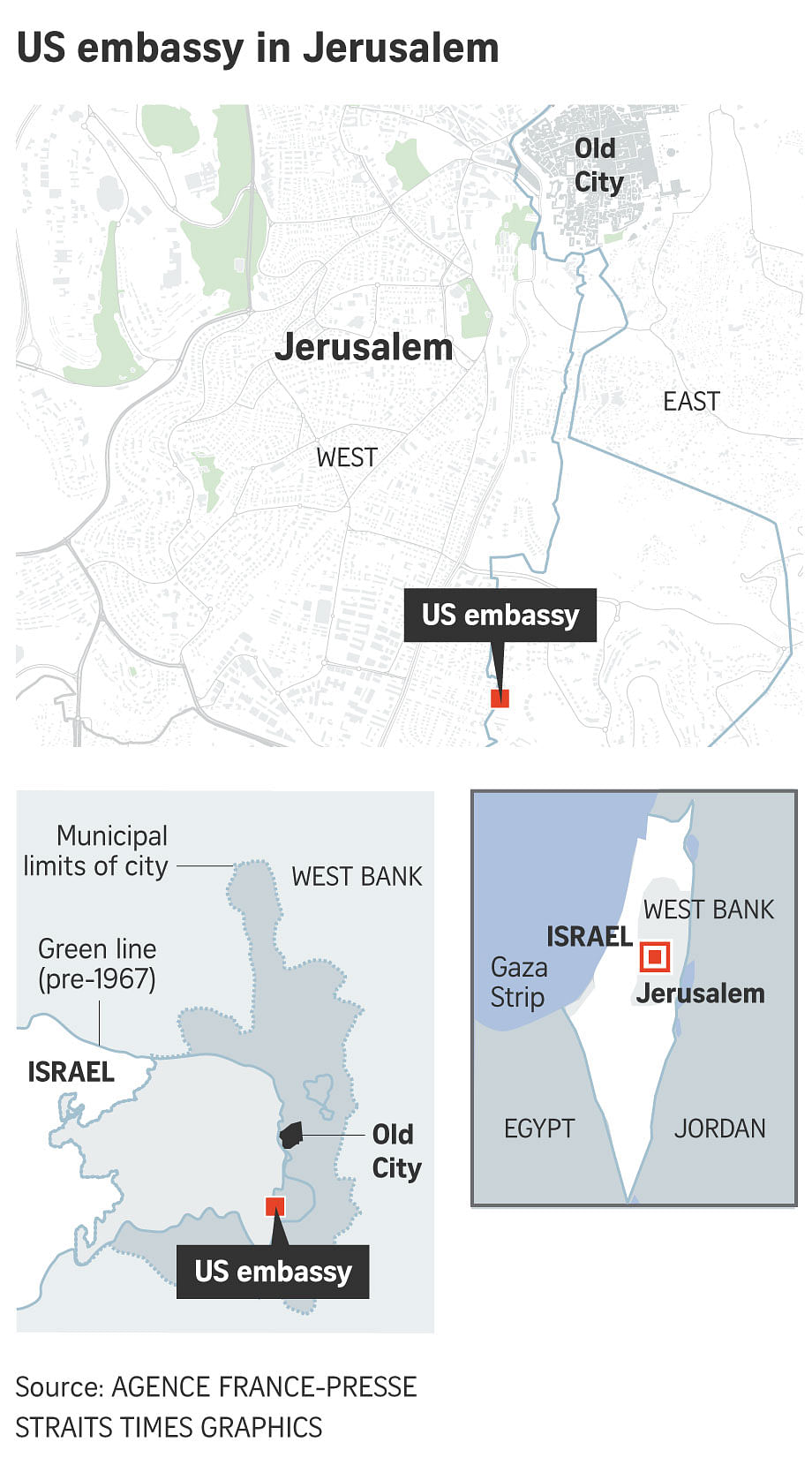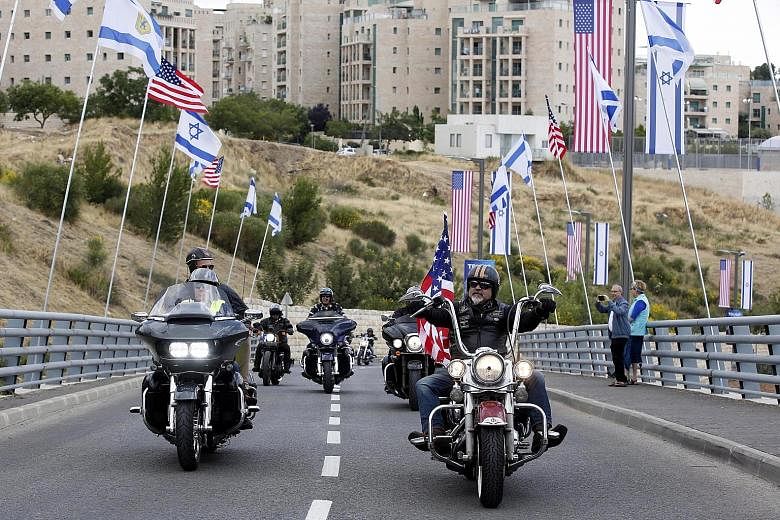WASHINGTON • United States President Donald Trump has been telling friendly audiences that he is proudly fulfilling a campaign promise with the opening of the US Embassy in Jerusalem and that his real-estate savvy is already saving the taxpayers a buck on the new location.
A campaign rally crowd gave Mr Trump lengthy applause when he said the new embassy will open today, and on the cheap. "I said, 'How much?,' something other presidents don't ask. They said, 'Sir, 1 billion dollars,'" he said in theatrical disbelief. "For US$150,000 (S$200,000) I could fix it. It'll be beautiful," Mr Trump said at the rally last Thursday in Elkhart, Indiana.
He said nothing about another campaign promise to seek a peace accord between Israel and the Palestinians, or the fact that meeting the first promise has, at least for now, foreclosed a chance for the second.
A regional peace initiative led by presidential adviser and son-in-law Mr Jared Kushner has been shelved because of Palestinian anger over the shift in decades of US policy regarding the embassy, which held that Jerusalem's disputed status was an issue to be resolved through negotiations. Keeping the US embassy an hour away in Tel Aviv was a signal that the US would not prejudge competing Israeli and Palestinian claims to land and sites in the holy city.
Before the embassy announcement, the Trump peace plan was widely expected to be unveiled early this year, with Israeli-Palestinian talks to follow. Mr Trump spoke expansively last year of a chance to make "the ultimate deal", succeeding where others had fallen short.
Palestinian leaders called the embassy move a betrayal and an abdication of the US role as a neutral broker in the Israeli-Palestinian conflict. They have boycotted meetings with US officials since the move was announced in December.
None of the senior US officials attending the embassy opening today, including Mr Kushner and his wife, Ms Ivanka Trump, are expected to meet Palestinian leaders. The opening is timed to celebrate Israel's 70th anniversary on May 14.

Mr Trump is not attending, and neither are Vice-President Mike Pence nor Secretary of State Mike Pompeo, whose deputy, Mr John Sullivan, is leading the delegation.
The relatively low-key delegation is a signal that the White House retains hope for the peace proposal this year, although there are no outward signs of progress. US officials say the plan is not dead and will be presented "at the right time".
Others frame the embassy decision as a common-sense recognition that Jerusalem already functions as the Israeli capital and would remain so in any negotiation.
In the face of criticism from Europe and the Muslim world, the White House has argued that the embassy decision would help peace prospects rather than hurt them.
No other countries have their embassies in Jerusalem, though some did operate from there until the 1980s. On Wednesday, Guatemala will open its embassy in Jerusalem.
US Ambassador to Israel David Friedman, speaking to reporters from Tel Aviv, said diplomats from other nations were not invited to the opening, "so it would be incorrect to report that any other nation declined our invitation because we simply didn't send any out".
Some European and other diplomats have declined to attend a separate celebration sponsored by the Israeli Ministry of Foreign Affairs.
On May 7, Jerusalem Mayor Nir Barkat hung the first street signs in Hebrew, Arabic and English, pointing to the relocated US Embassy. "This is not a dream - it's reality!" he said in a statement.
Israelis are also delighted by the embassy move, which Prime Minister Benjamin Netanyahu has cast as an endorsement of his stewardship of the US-Israeli alliance. Thousands of Israelis, basking in national pride, were due to march yesterday.
Meanwhile, Palestinians readied for their own protests planned for today.
WASHINGTON POST, AGENCE FRANCE-PRESSE

